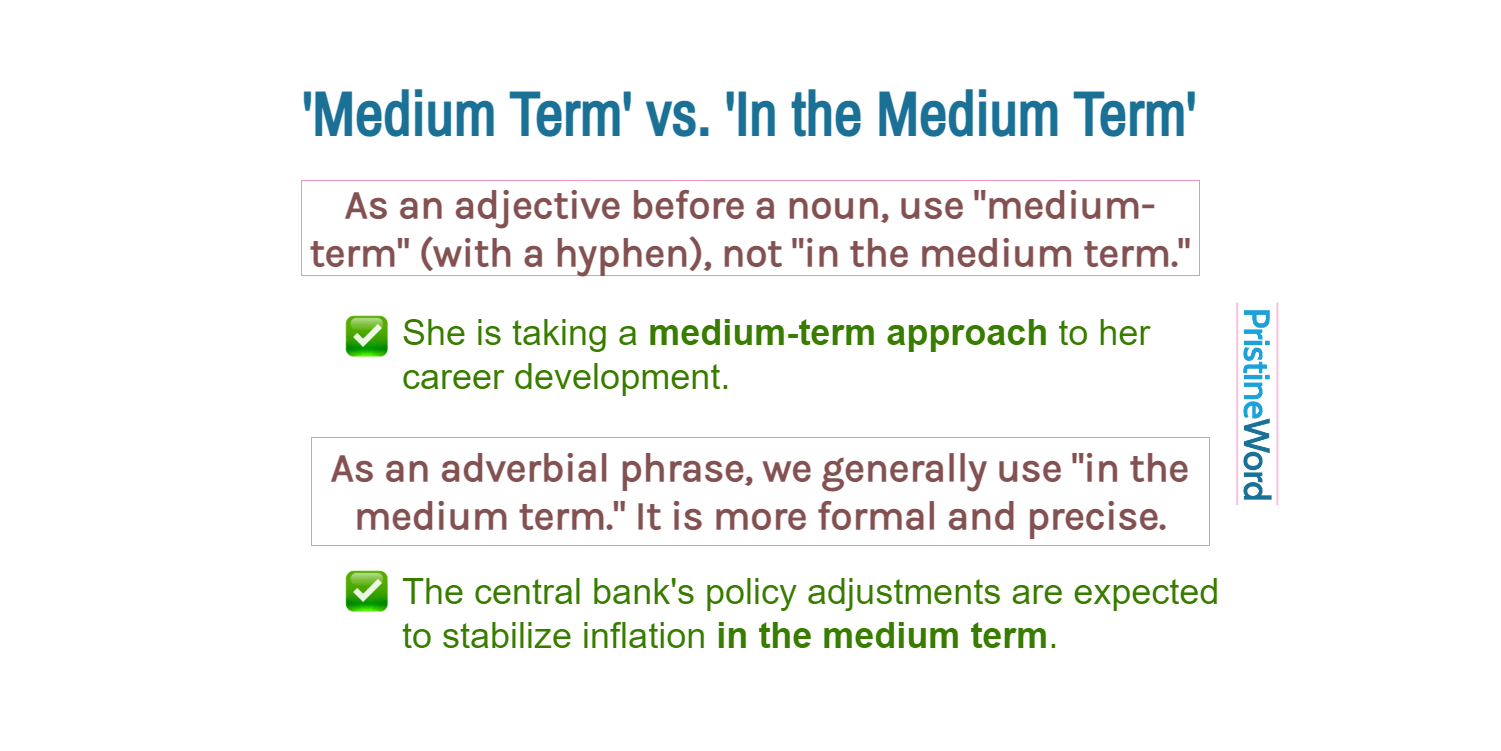When to use "medium term" and "in the medium term" according to the context.
When acting as an adjective preceding a noun, use "medium-term" (with a hyphen) instead of "in the medium term:"
The stock shows a positive medium-term trend.
The stock shows a positive in the medium term trend.
When used to modify a verb as an adverbial phrase, we normally use "in the medium term". It also conveys a sense of formality and specificity:
Investors are optimistic about the stock's performance in the medium term.
If you're describing a noun like "goals" or "investment," you would use "medium-term." If you are specifying when something will occur or last, then you would use "in the medium term."
In very specific contexts, the shorter phrase (medium term) can also be used to provide a more colloquial and direct way to refer to a period that is neither short nor long. However, choosing "in the medium term" is almost always the safest option.
She always thinks medium term.
She always thinks in the medium term.
When used as an introductory phrase, "in the medium term" is recommended, especially in formal and semiformal situations.
In the medium term, we plan to expand our operations into new markets.
Medium term, we plan to expand our operations into new markets.
Follow the same logic with the phrases "short term"/"in the short term" and "long term"/"in the long term."

